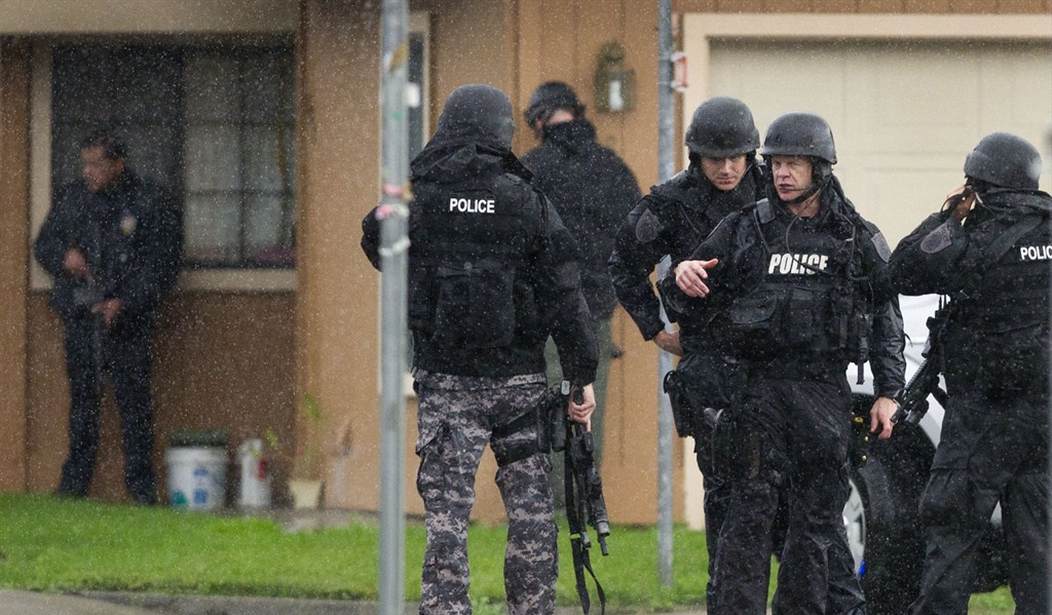On Monday, FreedomWorks and the Center for American Progress (CAP) joined forces to invite bloggers, writers, and some think-tank analysts for a daylong conference on justice reform. One of the aspects I liked about the conference is that it shows on some issues the left and right can agree. It’s disconcerting that we’ve gradually lost the ability to have a conversation with one another–the Indiana RFRA fiasco is a result of this decay in public discourse. So, it didn’t end like the Red Wedding; it didn’t even turn out like the end of Gangs of New York. In fact, despite our political differences, we found out that we actually agree a lot on the issues regarding mandatory minimums and civil asset forfeiture, which desperately need reform.
According to the Heritage Foundation, civil asset forfeiture is “a legal tool that allows law enforcement officials to seize property that they assert has been involved in certain criminal activity.” Julie Borowski, a former analyst at Freedomworks, gave a thorough presentation on what some call legalized theft (yes, I know some consider taxes to fall into the same category).
The mantra for those who support this legal tool in our justice system can be best described by former President George H.W. Bush who said, “ Asset forfeiture laws allow [the government] to take the alleged ill-gotten gains of drug kingpins and use them to put more cops on the streets.” Yet, it places the burden of proof on the property owner, which is a perversion of justice.
In 2014, U.S. Attorneys seized $679 million in criminal assets and $3.9 billion in civil assets. The truth is that anyone’s property can be taken without being convicted of any crime. Due to the costs of legal fees, some may never be able to reclaim their property. Most perniciously, there’s an incentive for law enforcement to do this since it's a revenue generator, though law enforcement does not want to be viewed this way. Borowski noted that it’s now being used to raise money.
Last October, Lyndon McLellan had his entire life savings confiscated by the IRS on the basis that he could be engaging in “structuring.”
Recommended
"They asked me if I knew what 'structuring' was and then they showed me some cash deposits I made in a 24-hour period," he told FoxNews.com.The IRS agents apparently were suspicious because of deposits McLellan had made of just under $10,000. Banks are required to report transactions over $10,000; making multiple deposits of less than $10,000 to evade that requirement is known as "structuring."
Under this pretense, enforcement agents accused McLellan of the con and seized all $107,000 from his bank account.
"It leaves you numb," McLellan told FoxNews.com. "I was in a state of shock."
…
What's unique in McLellan's case is that he's still battling to get his money back, despite the IRS pledging late last year to pull back on its use of civil forfeiture -- and despite even the IRS commissioner suggesting agents erred in locking down his money.
Before the federal seizure last year, McLellan had spent more than a decade running L&M Convenience Mart, a gas station, restaurant and convenience store in Fairmont, N.C.
In an instant, his business account was gone. And then it got worse.
Rumors quickly spread in the tiny town that McLellan's money was frozen because of suspected ties to drugs, fraying the good reputation he'd spent years building in the community.
"Several people thought it was drug-related but when I told them what really happened they said, 'How in the world can they take your money?' That's the answer I've been waiting on too," he said.
McLellan claims he didn't do anything wrong. The IRS has never alleged he committed a crime nor has the agency brought any criminal charges against him. Instead, McLellan, 50, was verbally accused of structuring cash deposits to avoid bank reporting requirements, under a measure originally meant to target drug dealers, terrorists and others trying to launder money through criminal activity.
Another story involved a Philadelphia family that were evicted after their son conducted a $40 drug deal outside their home. They eventually got their house back, but their son cannot be on the premises–and they live in fear that government will come back to evict them again. Luckily, the city said they're no longer looking into taking their home.
While not the safest idea in the world, a 78-year-old U.S. citizen had her entire life savings confiscated when she failed to declare she had more than $10,000 in her possession. She had just sold her house and was carrying a whopping $40k on her in person. Again, no charges were filed against her.
Borowski concluded by saying that this isn’t all doom and gloom. There are tons of state laws being proposed to curtail this practice. In New Mexico, a person must be convicted of a crime before police can seize property.
At the federal level, Rep. Tim Walberg (R-MI) and Sen. Rand Paul (R-KY) have introduced the Fifth Amendment Integrity Restoration Act. It requires the government to make a convincing argument for seizing property, and requires that hearings must be held after 14 days to establish probable cause.
There are many, many more cases of government engaging in this practice, which in the Philadelphia house evection case, is based on a preponderance of evidence (51 percent) standard.

[Image courtesy of the Institute for Justice]

























Join the conversation as a VIP Member